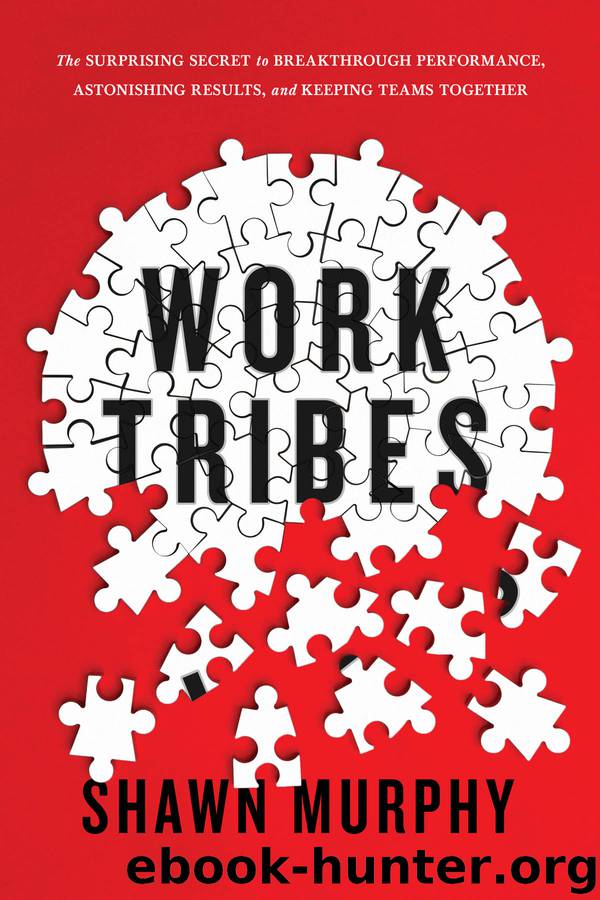Work Tribes by Shawn Murphy

Author:Shawn Murphy
Language: eng
Format: epub
Publisher: Harpercollins Leadership
Published: 2019-07-07T16:00:00+00:00
Human Chemistry Lesson: Liberation and Depletion
The consequences of too much technology in our lives has contributed to an increase in loneliness, anxiety, depression, and burnout. Technology has also widened our understanding of our place in the world, helping us to learn how other cultures live, and providing us with tools to express our ideas and creativity.
The abundance of technology contributes to information overload. In research laboratories, our consumption of online content is diminishing critical brain functions: attention, perception, decision making, and delaying gratification. Our devices are gateways to other worlds and that is leading to dysfunctions too. Dr. Adam Gazzaley, professor of neurology, psychiatry, and physiology at the University of California San Francisco, asserts that our distracted minds are minimizing positive influences on a healthy life. For example, with our faces chronically buried in our devices we are spending less time outside; devices are omnipresent at the dinner table, and we are exercising less. Our addiction to our tech is also interfering with the quality of our sleep. The dulling of our tech-addled brains is now adversely affecting the quality of relationships we have. Low-quality relationships and the absence of restorative sleep contributes to diminished capacity for empathy, collaboration, compassion, and belonging.11
It seems the crankier we become the faster our agency atrophies.
The ripple effect continues, unfortunately. As our social inclinations decline but our workload increases (remember we are collaborating more to get work done) we begin to experience burnout. In a 2016 report, nearly 50 percent of people say work exhausts them. The report compares the results to twenty years ago when only 18 percent of people felt burned out. It gets worse. The more burned out people feel, the more lonely they feel. One of the many benefits from feeling a sense of belonging is mitigating the experience of loneliness. Feeling alone can reduce a person’s life expectancy by 70 percent.12
In the context of today’s workplace, burnout is an epidemic. Kronos, an HR consulting firm, found in its 2017 study that 95 percent of CHROs say burnout affects employee retention. If your organization is like the many I’ve consulted with, then you can corroborate the other disappointing finding in the Kronos study. 87 percent of HR leaders say retention is a top priority, but 20 percent say higher priority projects prevent them from taking action.13 It is a classic dynamic we see too often in business: build the company’s growth on the backs of employees. However, this time employees’ backs are bruised, broken, or just not available. A toxic contagion, burnout diminishes a company’s ability to win new business by 66 percent.14
Burnout is attributed to a number of factors that are key to our exploration of belonging. Workload is the biggest factor. The physical work environment contributes to employees becoming unable to handle the distractions. Work schedule issues and a person’s own performance round out the four major reasons for employee burnout.15 We chat, text, and email one another long after quitting time. Since laptops and tablets are prolific in our lives, employees can work anywhere and anytime.
Download
This site does not store any files on its server. We only index and link to content provided by other sites. Please contact the content providers to delete copyright contents if any and email us, we'll remove relevant links or contents immediately.
Bad Blood by John Carreyrou(6599)
Rich Dad Poor Dad by Robert T. Kiyosaki(6575)
Principles: Life and Work by Ray Dalio(6379)
Playing to Win_ How Strategy Really Works by A.G. Lafley & Roger L. Martin(6179)
Management Strategies for the Cloud Revolution: How Cloud Computing Is Transforming Business and Why You Can't Afford to Be Left Behind by Charles Babcock(4558)
The Confidence Code by Katty Kay(4237)
Thinking in Bets by Annie Duke(4203)
American Kingpin by Nick Bilton(3856)
Delivering Happiness by Tony Hsieh(3408)
Project Animal Farm: An Accidental Journey into the Secret World of Farming and the Truth About Our Food by Sonia Faruqi(3207)
The Power of Habit by Charles Duhigg(3116)
The Tyranny of Metrics by Jerry Z. Muller(3048)
Brotopia by Emily Chang(3035)
Mastering Bitcoin: Programming the Open Blockchain by Andreas M. Antonopoulos(3027)
The Marketing Plan Handbook: Develop Big-Picture Marketing Plans for Pennies on the Dollar by Robert W. Bly(3026)
I Live in the Future & Here's How It Works by Nick Bilton(2975)
The Content Trap by Bharat Anand(2907)
Applied Empathy by Michael Ventura(2882)
Building a StoryBrand by Donald Miller(2881)
